In this article
Cats are highly attuned to their environment and are sticklers for routine. This sensitivity can make them easily startled by certain objects, sounds, and situations, and it all comes down to a cat’s natural instinct for self-preservation and unease surrounding any kind of sudden change. Even the most confident and usually unflustered felines can be taken by surprise, prompting the run-and-hide response.
So, if you’re curious about what cats are afraid of or the kind of things or situations that make most cats uneasy, read on to learn more and how you can help soothe a frightened cat.

Top 8 Things Most Cats Are Afraid Of
1. New Objects
You’ve no doubt seen the infamous YouTube videos of cats leaping several feet in the air at the sight of a cucumber. There’s actually a very good reason why our feline friends are so appalled by this seemingly innocuous vegetable, and it’s simply this: It’s something weird and new to them.
While some sources say that this anxiety about cucumbers comes down to a natural fear of snakes (which the cucumber’s shape has been said to remind cats of), according to the Cornell Feline Health Center, it’s more likely to do with personality and the “sudden appearance of a novel object.”1 Cats are easily agitated by new objects in general, cucumber or not.
Though the cucumber phenomenon has gotten plenty of giggles over the years, it’s not fair to deliberately startle a cat with something they’re likely to be afraid of. Introduce new objects (like nail clippers, brushes, etc.) gradually by letting your cat sniff and interact with them on their own terms.

2. New People
Your home is your cat’s safe place—a place of routine and predictability. This sense of security is easily fractured with the arrival of new people. Now, while not every cat is afraid of strangers, it’s not uncommon for them to vamoose as soon as guests arrive.
Some cats are a little more skittish or fearful by nature, but others may be afraid of new people because of past incidents, such as being treated roughly by a child, for example. Often, cats that haven’t been socialized with people from a young age are also nervous around strangers.
When people come over, leave your cat be and don’t force them to come out and interact. Go about your business and let your cat come to meet your friends at their own pace. If they do head your way, ask your friends to give your cat a treat to create positive associations.
3. New Pets
If there’s something that shakes your cat’s sense of stability and territory beyond all else, it’s the arrival of a new pet. If we think about it from a cat’s perspective, new animals are a potential challenger for territory and resources, and they come with a host of new smells unfamiliar to your cat. All this is enough to send the resident cat into self-preservation mode.
Some cats hide from new pets, whereas others go so far as to attack them to make it perfectly clear who is in charge. All of this doesn’t in any way mean you shouldn’t adopt new pets, but it does mean that you should do gradual introductions to make it easier on both your new pet and the resident cat.
You can do this by keeping your pets apart at first and swapping items between them so they can get used to each other’s scent. When you progress to meetings, let them meet on other sides of a door (screen doors and baby gates are good for this purpose) first. You can even feed them at the same time on opposite sides of the door while they’re getting to know each other.

4. Loud Sounds
Cats have an acute sense of hearing, so what may be a normal sound to us could be enough to make our feline friends jump out of their skin. To put this into perspective, cats can hear sound frequencies of up to 60,000 Hz while humans can only hear up to 20,000 Hz.
Common sounds that send some cats reeling include vacuum cleaners, babies screaming, traffic noise, coffee machines, loud TVs or music, and construction noise. If your cat is easily spooked by household sounds like the vacuum cleaner or coffee machine, use them while your cat is safely in another room with plenty of hiding spots.
5. Cat Carriers
When it’s time to go to the vet, getting a cat into their carrier is one of the most stressful parts of the whole experience for many. A lot of cats are afraid of getting into their carrier because the process is often rushed and stressful, trying to get the cat in the carrier they normally don’t use and may be filled with unfamiliar scents from their previous vet visit, as well as some cats possibly associating it with leaving home and therefore their safe space.
One way to desensitize your cat to the carrier is to create positive associations with it. Leave the carrier out in your home permanently and make it nice and comfortable (ideally with a blanket or item of clothing that smells like home) so it will be more of a place your cat wants to hang out.
Let your cat explore and go in and out of the carrier whenever they want, but never force anything. It can take weeks for a cat to feel confident enough to go inside, if ever. When your cat is comfortable in the carrier, start putting some tasty treats inside to create positive associations.
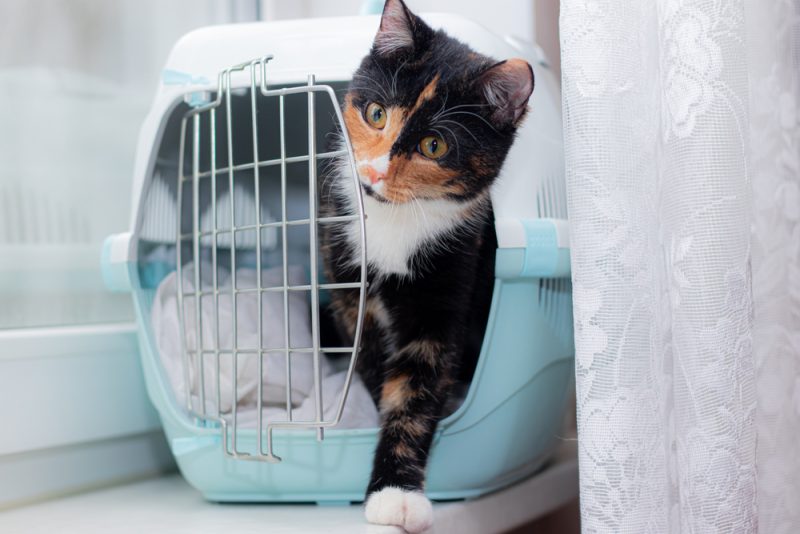
6. Being Punished
Punishing your cat for undesirable behavior is never the answer. It erodes your cat’s trust in you, instills anxiety, and makes the issue worse. Stress, fear, and anxiety are major causes of cats being destructive or experiencing bathroom issues, like going outside the litter box.
If your cat is destructive, it may be a sign that they need more exercise, mental stimulation, and scratching posts, if they haven’t already got one. Play with your cat every day and make sure they have plenty of opportunities to exercise to release all that excess energy and provide scratching posts so your cat can get their natural scratching urges out on this instead of your furniture.
7. Water
Some cats don’t mind water and even enjoy swimming, but many dislike it or even fear it for several reasons. It’s cold (and cats are big fans of being nice and toasty), unnatural to them (cats are of desert origin), smells strange (chlorine in pools, for example), and makes their coats feel heavy, which in turn makes it harder for them to swim or get away in case of trouble.
In addition, cats clean themselves and don’t typically need to be bathed (unless you have a hairless cat, your cat is covered in something dirty, or your vet has advised bathing for medical reasons), so the process of bathing feels strange and unnatural to most of them.

8. Not Having Hiding Spots
All cats should have hiding spots like cat condos, cardboard boxes, and/or cat beds with a roof because being left in wide-open spaces makes them feel especially vulnerable. Providing ample hiding spots gives your cat the sense of safety and security essential to their well-being. Climbing spots (shelves, cat trees, etc.) are also important.

How to Soothe a Scared or Anxious Cat
When something triggers your cat’s fight-or-flight response, it’s best to allow them to retreat to the space they feel comfortable. Hopefully, your cat already has spots they can feel safe in (like a room where their bed, cat condo, or other hiding spot is). If not, now is the time to start thinking about the places your cat likes to spend time the most and how you can make it feel like a safe space for them.
When your cat retreats to this space, don’t crowd them, make a huge fuss, or force them to come out. Stay calm, leave them alone, and give them the space they need to settle down (unless they’re the kind of cat that seeks comfort from you). Let your cat come out of hiding when they’re ready to.
Minimize what’s scaring them as much as you can; for example, by closing the curtains and turning the TV on if there are fireworks nearby. White noise, soft music, or speaking to your cat in a soft voice may also be helpful. Some cat parents use pheromone plug-in diffusers that are designed to release synthetic calming pheromones similar to those cats release from their scent glands. A veterinarian can also give you some great advice on calming techniques for your cat.
If you need to speak with a vet but can't get to one, head over to PangoVet. It's an online service where you can talk to a vet online and get the advice you need for your pet — all at an affordable price!


Conclusion
It’s completely normal for cats to get startled or scared at times, but if you think your cat is scared of everything or shows signs of chronic anxiety, like overgrooming themselves, going to the bathroom outside the litter box, urine marking, aggression, pacing, restlessness, decreased appetite, and hypervigilance, it’s time to get them checked by a vet.
Featured Image Credit: Nikolay Bassov, Shutterstock
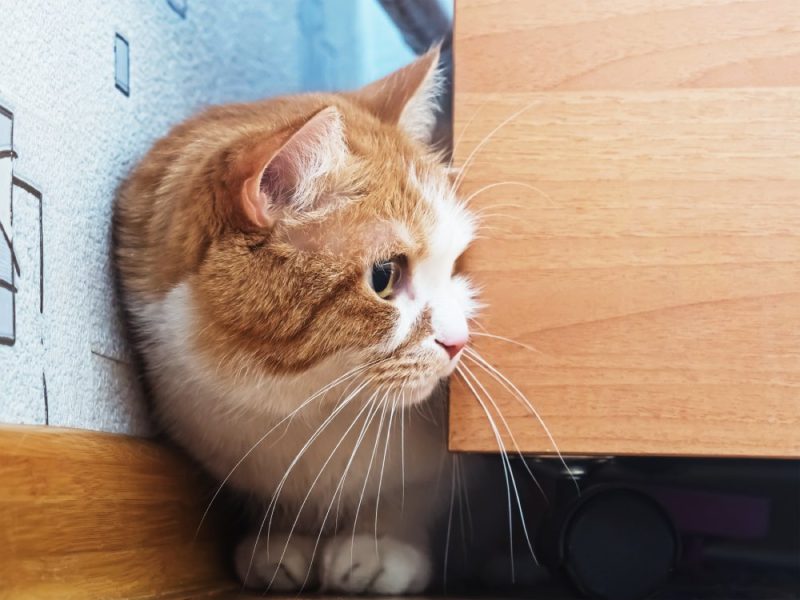








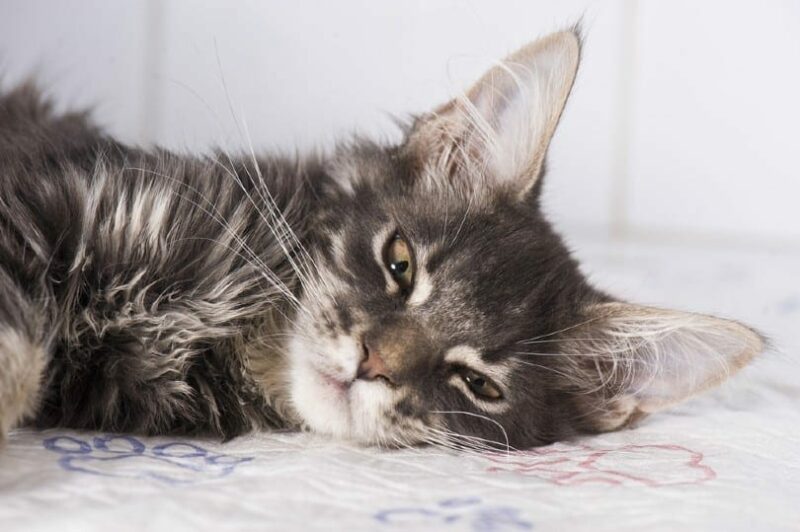
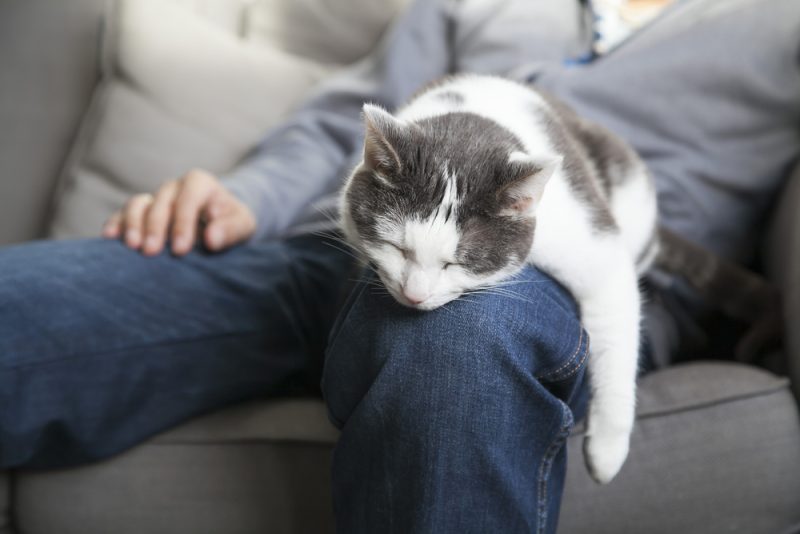




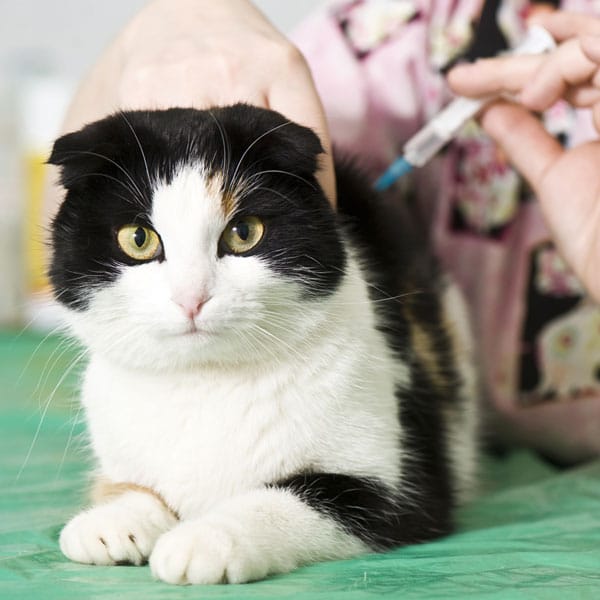
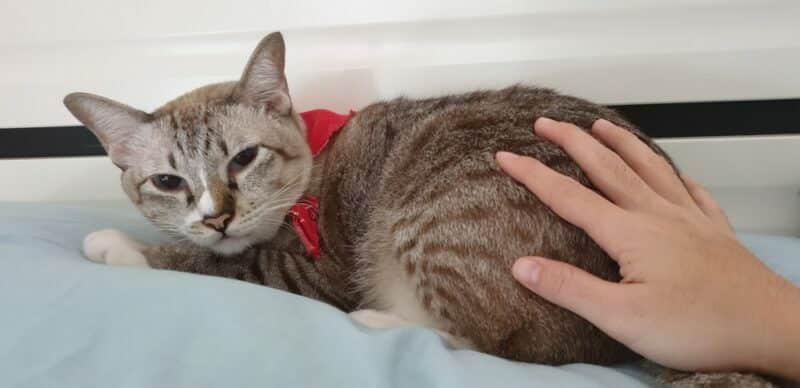


2 Responses
I noticed my cat would meow at me and bite my ankles. After a while, I figured out it was because he was hot. So I will just gently pour cold water over him, that makes him feel a lot better. Also was good to keep a fan or air Purifier available to them at all times to stay cool.
Thanks for sharing your story Lara.